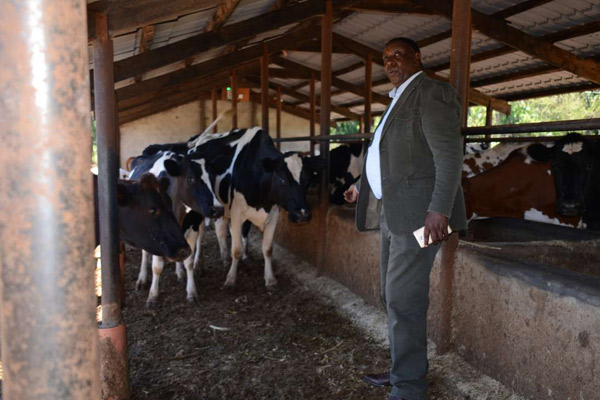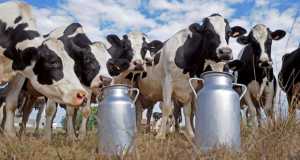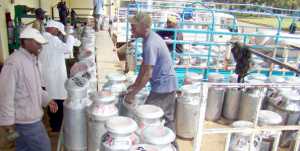Joel Gesuka’s farm is situated in Amogoro area on the outskirts of Kitale town.
At the farm, he keeps 50 dairy cows which by 10am are usually already fed and resting.
On the left side of the farm is a lush napier grass plantation glistening in the morning sun.
Twenty-eight years ago after graduating from the University of New Delhi in marketing and management, Gesuka decided to try his luck in maize farming.
He did it for 19 years before he decided to venture into dairy production after realising that he was putting a lot time and resources in maize but at end of the day he earned less.
Gesuka used to cultivate maize on more than 300 acres.
“I used to harvest about 4,000 bags of maize in total which when you calculate you find that the yield is very low compared to the input,” he says.
He was forced to reduce the number of acreage gradually till he quit maize farming completely.
According to Gesuka, those who succeed in maize farming are farmers who have been contracted to grow seed maize and supply it to seed companies, saying maize farming is just a routine.
When he looks back today, he knows turning to dairy farming was one of the best decisions of his life.
Gesuka started with only three cows and slowly mastered the activity.
And within a short period, he grew to become the owner of Mutongorio Dairy Farm in Cherangany boasting a herd of 50 Friesian cows.
The cost of one Friesian cow is between Sh. 100,000 and Sh. 150,000.
When you visit his farm, you will always notice Gesuka giving instructions to his employees before leaving for work.
Every day he makes sure that 15 of his cows are milked at 5am and 5pm.
He obtains about 450 litres of milk per day, 300 litres in the morning and 150 litres in the evening.
This means that at a cost of Sh. 40 per litre, Joel’s Fresian cows can give him Sh. 540,000 per month.
“There is a ready market for my milk locally, but my main outlet is the hotel I own, the Skynest County Hotel. I also sell to the needy population and because of the quality of my milk it goes like hotcake,” he says.
To feed his cows, 50 acres of land have been set aside for growing maize solely for making silage.
On another 20 acres he has planted sunflower. Five acres is under napier grass.
His cattle are kept in a zero-grazing unit which is more economical and allows for easy disease and pests control.
Gesuka says that for one to succeed in dairy farming, you need to ensure there is enough water and feeds for the cattle.
“Once you have enough pasture, stock hay, silage, napier grass and dairy meal and you will reap big,” he said.
Water is pumped into four tanks with capacity to store 34,000 litres. A spring in his farm ensures there is enough water during the dry season. He ensures that his cows are feed thrice a day.
“We normally mix the ratio of feeds with enough silage, hay and napier grass every morning and supplement them at around noon and also in the evening,” he said.
Sometimes, he obtains the dairy meal from the Agricultural Development Corporation which has the highest yielding dairy meal that gives better returns than other animal feeds.
In terms of breeding, Gesuka does not keep bulls, saying it is expensive to manage bulls in the farm. He instead he serves his cattle with semen from ADC.
“Once you serve them with quality semen you will be assured of getting a good calf which will be get used to your farm and will give you more milk,” he explained.
In the next five years, Gesuka is thinking of venturing into large scale dairy production by purchasing milk coolers so that he can supply to a large market and institutions.










